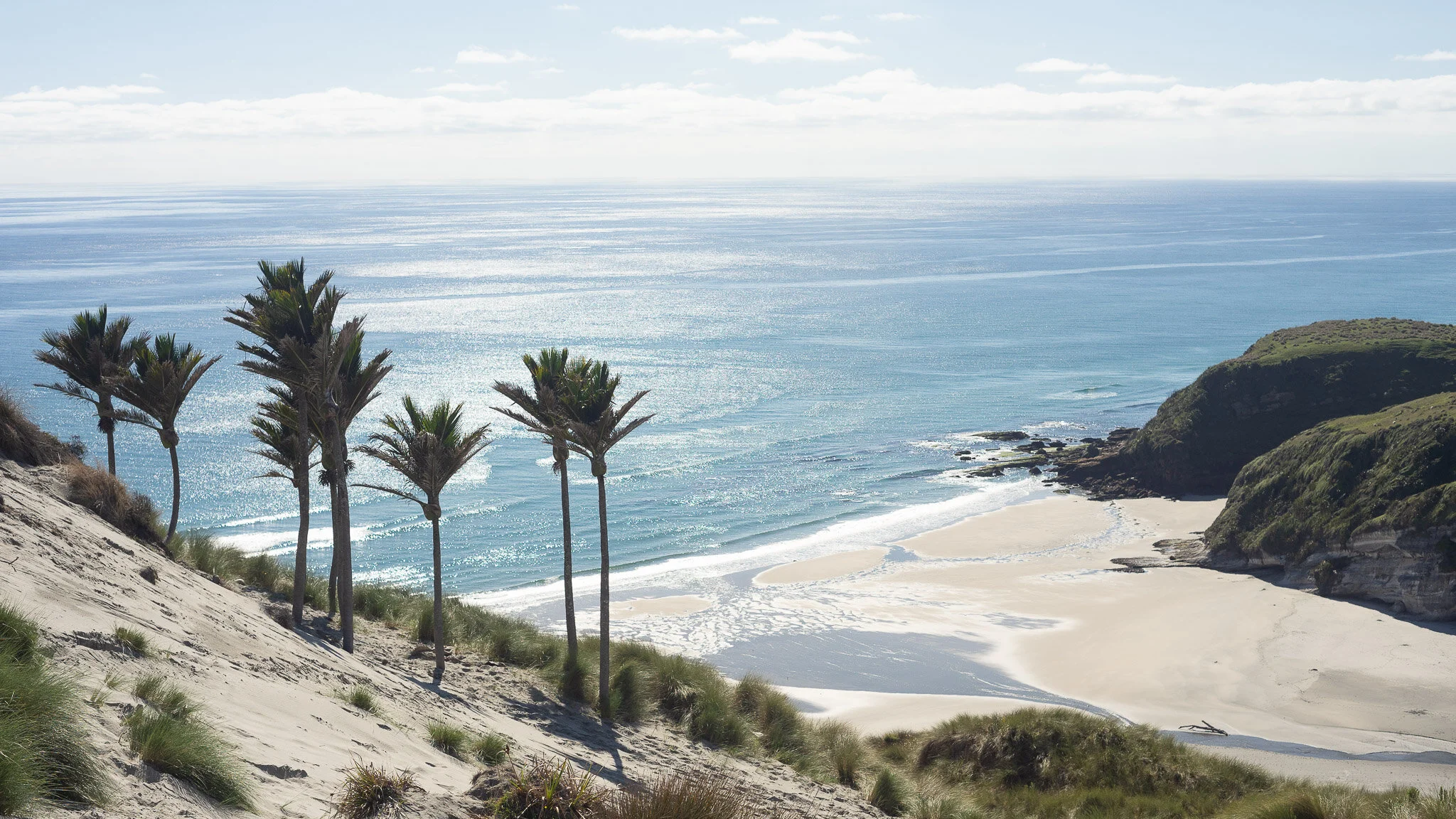
Buried in Sand
Scouring and deposition has buried areas which were once forest, now skeletal branches poke their arms from a sandy grave. While the trees did not survive, some of the lianes which once adorned their crowns are holding on in the sand.

A Pair of Threatened Dandelions
With no prior knowledge of Sonchus novae-zelandiae, I stumbled across it by accident and was instantly struck by the attractiveness of this small herb. The glaucous rosettes contrast nicely from its older yellowing leaves. Perched atop quartz rich Marlborough schist, its salty looking fine hairs and flower buds appear at home by the sea edge.

The Golden Arches
No not Macca’s, but give it twenty years and there may be one gracing Oparara with its presence. The incredible karst landscape is currently being groomed into the new sparkling beauty of New Zealand tourism. A $5.7 million growth fund is proposed to bring large numbers of visitors to a fragile environment that hosts a range of endangered flora and fauna.

Steamy Earth
Waimangu takes claim to the most botanically rich geothermal area in New Zealand. The first species we encountered was prostrate kānuka (Kunzea ericoides var. microflora) which is small, at under two metres. The extreme heat of the ground means this species has to grow roots horizontally across the cooler exposed ground, becoming naturally bonsaied by heat.

Maungauika & The Convalescents
The built structures along this piece of coast tell a history of geology and war. A salt-water swimming pool was constructed of scoria on the tides edge, as the medicinal properties of salt-water bathing were held in high regard at the time. Today, its barnacle crusted rim encircles a crater-like pool, reflecting the sky and the occasional bather. There is a simplicity in material used in these old structures that lets the landscape speak for and with itself.

Paritu Granite
Moehau peak hosts unique flora and fauna for a North Island forest, with a range of native coniferous species such as Halocarpus biformis and Manoao colensoi. It is also the northern limit for many southern species like Phyllocladus alpinus (toatoa) and Libocedrus bidwillii (pahautea). Paritu ‘granite’ forms most of Mt Moehau, this type of rock is rare in the North Island, but common in the South Island which may play into these plant distributions.

Limestone Endemic Giant Daisies and Plenty of Sticks
Emerging into a grassy scrubland below the base of these spires, I was struck by a healthy population of the limestone endemic Brachyglottis hectorii. The position owing to its wind dispersal mechanism. Carried by the wind, the seed drops here as it breaks against the cliff face. It is an attractive shrub in Asteraceae or daisy family, capable of heights to 4m with jagged toothed leaf margins. It shares cottony, tomentose leaves with bushman’s toilet paper (Brachyglottis repanda); a tramping and coronavirus desperation measure.

Patchwork
Tauhinu is responsible for the silvery-green and purple tones present in much of this landscape. The most striking example (eighth image), is a strong colour gradient between two species across the bluff. A very healthy population of Veronica parviflora starts as a dense, lime-green mass further inland. It diffuses into an even distribution of singular rounded shrubs amongst tauhinu and finally wanes closer to the coast.

Griselinea Ridgeline
Where fire hasn’t pruned the landscape, massive Griselinia trees dominate the forest. Attaining trunk diameters of at least 1.5m, impressive stout specimens drip with epiphytic Asplenium flaccidum. These trees dwarf suburban hedges of the same species by a hundred fold. Near the coastline, Griselinia fall over in themselves in twisted, tortured forms reminiscent of the Stranger Things creatures.
